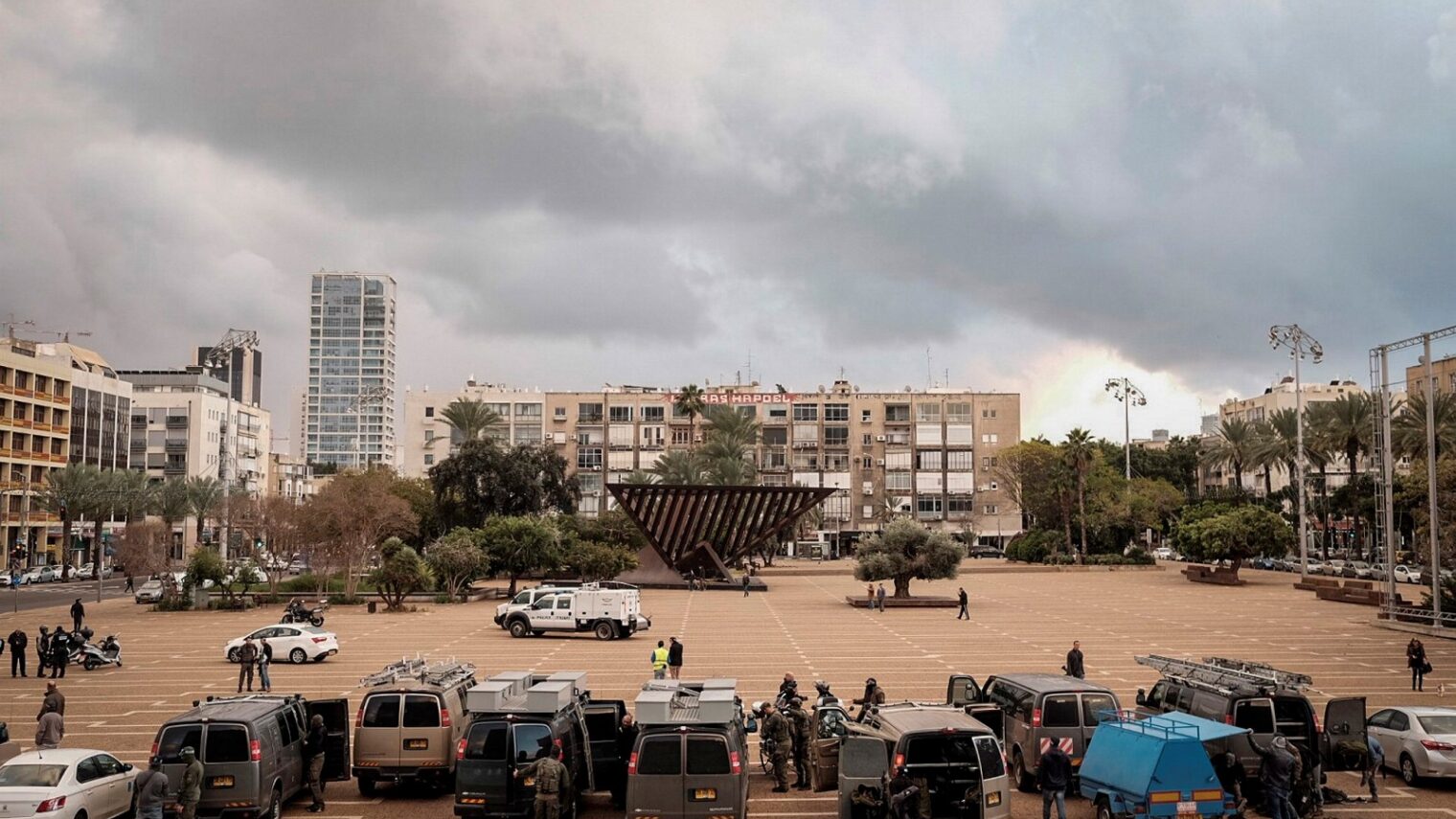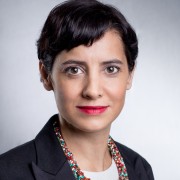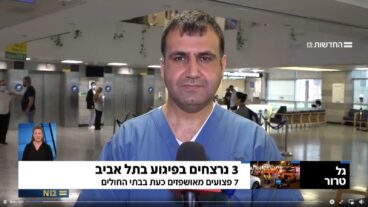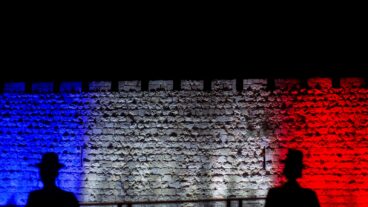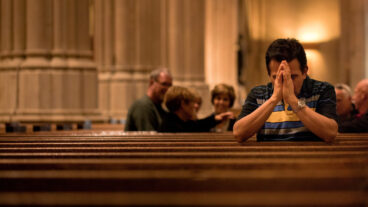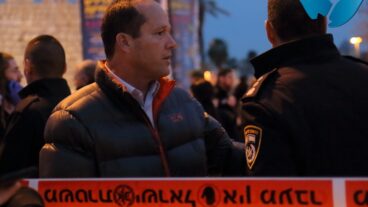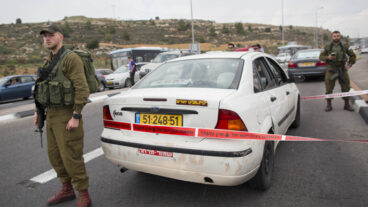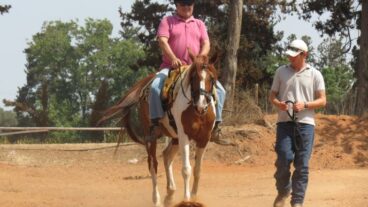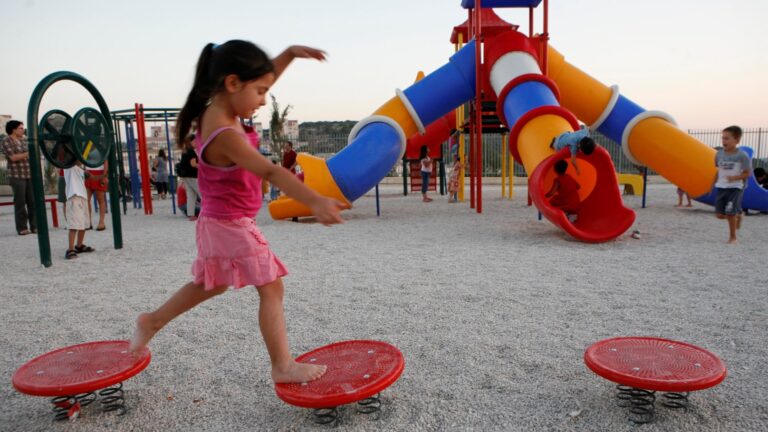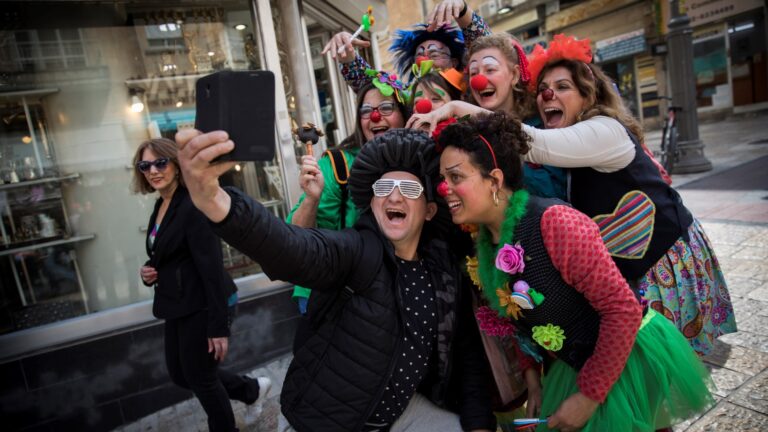“Mommy, do I have to go to school today? I am afraid. What if the terrorist comes to our school?” Yarden, my six-year-old, asked me over a week ago while an armed assailant was still on the loose.
“Don’t worry, dear,” I answered. “You are safe at school. You will enjoy meeting your friends and talking to your teachers. And the guard at the entrance to school always makes sure that only parents enter.”
As crazy as it sounds, I do believe my kids are safe at school – although an armed terrorist was believed to be hiding somewhere in Tel Aviv for seven days after he murdered civilians on a Friday afternoon in the center of Tel Aviv while they were celebrating their friend’s birthday.
And to make things even more worrying, the attacker’s mobile phone was found only 170 feet from our home, in a quiet neighborhood of Tel Aviv, where he left it before he went to execute his terrible plan.
You might think I am irresponsible.
One month ago, the world was caught off guard by the horrible series of terror attacks in Paris. Parisians were instructed to stay home, and the streets of the City of Lights were empty and dark.
Brussels — the capital of Belgium, home of the European Parliament — was practically shut down for five entire days, including the school system, public transportation and entertainment venues. The uncertainty the Belgian authorities faced — about the location, plans and next steps of the terrorists — brought them to the conclusion that the price of shutting down the city for five days was a necessary cost to keep their population safe.
On a different corner of the planet, in Israel, people live in a routine of uncertainty.
During these past weeks, terrorist attacks mostly in greater Jerusalem spread to other locations in Israel, including Kiryat Gat in the south, Tel Aviv, Afula in the north and Ra’anana in the center of the country. Young lone terrorists have carried out the attacks. There were also three assailants who were Israeli Arabs, Palestinians staying in Israel illegally, two women and two children. Generally speaking, the terrorists have not belonged to any established terrorist organization, and the current wave of terrorism has not been directed by any such organization. This has made the wave of attacks even more unpredictable.
So we wake up every morning and continue our day-to-day routine, knowing in the back of our mind that anything can happen, any time.
Terrorism is not designed specifically for mass killing of civilians. Intimidation and paralyzing the normal order of life is a goal in itself. And the result could, as it did elsewhere in the world, empty the cafés and restaurants, paralyze the education and transportation systems, neutralize entertainment sites and otherwise disrupt day-to-day life. But not in Israel.
Uncertainty has become our reality here in Israel. This has been our story for many years.
I believe that learning to cope with uncertainty, and developing skills to adapt to changing circumstances, is in the DNA of Israeli society. This is something our kids learn at an early age.
How was I supposed to answer my 11-year-old when he asked me, one summer evening in 2014, if he could invite his classmates to our home? This was in the midst of weeks of missiles fired toward Israeli cities including Tel Aviv. I actually agreed, without hesitation. We have a secure room, like most Israeli homes. So worst case, if there is an alarm, the kids will all join us there. And this is exactly what happened: A dozen 11-year-old kids, two adults and a dog, all together in the secure room of our home. We joked, sang and talked while the sirens raged throughout the city.
“In this sense, being Israeli is similar to an endless boot camp towards the global information age, which is actually designed to make the idea of change your best friend.”
So how can one stay sane in such an unstable, uncertain environment?
Hofstede’s cultural dimensions theory shows that Israel is very unusual in terms of its uncertainty avoidance. Uncertainty avoidance is defined as “a society’s tolerance for ambiguity,” in which people embrace or avoid the unexpected or unknown. According to Hofstede, Israel is among the stronger uncertainty-avoidant countries. In these cultures there is an emotional need for rules — even if the rules never seem to work — and people typically are very expressive, a trait seen in Israelis’ tendency to gesticulation and vocal aggressiveness.
The formal uncertainty avoidance demonstrated by the Hosftede theory can be explained by the idea that in Israel, uncertainty is certain. It is actually our routine.
Not one Israeli child or teenager has escaped the experience of war, a reality that no doubt leaves a significant impression. What do they learn in coping with these situations?
Gan Gurim, a nursery school in central Israel, provides an example of how too-frequent emergencies look.
When sirens are blaring and rockets are launched toward Israel, teachers in Gan Gurim calm the three-year-olds by asking them to lie on the floor “like turtles” and read them a story in the calmest voice possible. The teachers know how important it is to guide their preschoolers through these circumstances, which will not be the last.
In mid-December 2015, a bomb threat shut down the Los Angeles school district and 650,000 kids stayed home from school. According to NBC News, America’s two largest school districts received similar threatening emails but New York shrugged it off, while Los Angeles shut down its system. The different responses reflect starkly different attitudes to stress and threat.
In contrast, even during the peak of missile attacks in Israel, Israeli children walked to school every day. In areas where the schools were not properly prepared with secure rooms, other regions would come to their assistance.
In the city of Ashdod a few miles south of Tel Aviv, for example, the tension and fear of rockets led to the cancellation of summer camps. Many families were then invited to stay with other families in the north of the country, who brought them to their homes after being hosted by the southern families during the Second Lebanon War in 2006. These types of arrangements are usually spontaneous and managed through social media by citizens who simply want to help each other.
This past Friday evening, only a few hours after the violent terror attack, social media in Israel was full of messages like this one: “The party tonight at the Ouzan Bar will take place as usual, starting at 1100 PM. Due to the situation, entrance fee is only 20 Shekels. Hope to see you! The terror will not win!”
The police forces, the mayor of Tel Aviv and the prime minister of Israel all had the same message to the residents of Tel Aviv: Stay alert. But keep your life routine, including going out.
Every child is able to understand this message – that no matter how bad it is, we must continue to operate normally. Uncertainty is not a comfortable situation to manage, but it’s different when it is your routine. Dealing with uncertainty is therefore a critical capability when you grow up and live in Israel.
Given all this stress, emergency and uncertainty, you might be surprised to learn that out of 41 countries, Israel was ranked fourth “Best Place Worldwide to Raise a Family” by the 2015 InterNations Family Life Index. France was ranked No. 8, the US No. 25 and Saudi Arabia last.
Children are better than adults at adapting to changes. One who grows up in an environment where the threat to life is constant can, with the right guidance, learn how not to be afraid of sudden changes, and moreover can specialize in creating change and adapting to it.
Such a child would most likely learn to acquire new skills and navigate life according to different rules, adjusting to uncertainty, adapting and building life in accordance to change.
Dr. Alon Gratch, an Israeli psychologist living in New York, says, “In this sense, being Israeli is similar to an endless boot camp towards the global information age, which is actually designed to make the idea of change your best friend. That is one reason why almost every young Israeli you meet in New York is an entrepreneur-to-be, a serial entrepreneur or an entrepreneur who already failed.”
In our small country, whose size is almost the same as the state of New Jersey, most days are somehow surprising. For those who live here, uncertainty is the routine.
It is no wonder that children who grow up in a constant state of uncertainty, and are given the guidance and tools to deal with this situation, can develop such important skills for dealing with uncertainty in all aspects of their lives.
This is another element that makes young Israelis such great entrepreneurs: In entrepreneurship in general, and in startups entrepreneurship in particular, uncertainty is inherent.
So my kids will go to school tomorrow. Life must go on.
Praying for safer days and a calm new year.
Inbal Arieli is listed in the 2015 100 Most Influential people in Israeli high-tech. She is the Vice President of Strategic Partnerships at Start-Up Nation Central. Before that she founded GAMMADO, an elite talent incubator, targeting Israel’s most outstanding tech young talent; and Israel’s first Start-Up accelerator – the 8200 Entrepreneurship and Innovation Support Program.
You can follow Inbal Arieli’s blog about the Israeli roots of entrepreneurship here.




